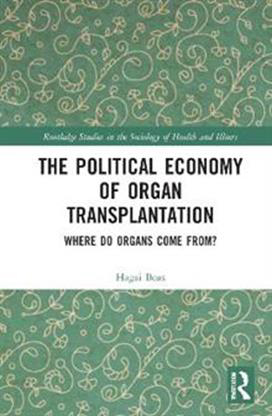MeST seminar with Dr Hagai Boas from The Van Leer Jerusalem Institute
Where do organs come from? The political economy of organ transplantations
 Organs for transplantations come from two sources: living or post-mortem organ donations. These sources set different routes of movement from one body to another. Postmortem organ donations are mainly sourced and allocated by state agencies, while living organ donations are the result of informal relations between donor and recipient. Each route traverses different social institutions, determines discrete interaction between donor and recipient, and is charged with moral meanings that can be competing and contrasting.
Organs for transplantations come from two sources: living or post-mortem organ donations. These sources set different routes of movement from one body to another. Postmortem organ donations are mainly sourced and allocated by state agencies, while living organ donations are the result of informal relations between donor and recipient. Each route traverses different social institutions, determines discrete interaction between donor and recipient, and is charged with moral meanings that can be competing and contrasting.
Based on his new book, Dr Hagai Boas will talk about this political economy of organ supply for transplantation. What are its features and contours, its negotiation of the roles of the state, market and the family in procuring organs for transplantations, and its ultimate moral justifications? Drawing on Boas’ personal experiences of waiting, searching and obtaining organs, he sheds light on a different aspect of the political economy of organs – post-mortem donations, parental donation, and organ market. Boas will discuss the experience of living with the fear of rejection and the intimidation of chronic shortage and illuminate the complex experience of being an organ recipient.
Hagai Boas is a medical sociologist and a four times organ recipient. He is the director of the Science, Technology and Society unit at the Van Leer Jerusalem Institute and is an adjunct senior lecturer at the department of politics and government at Ben Gurion University. His current book: "The political economy of organ transplantations: Where do organs come from" is out with Routledge publishing.
